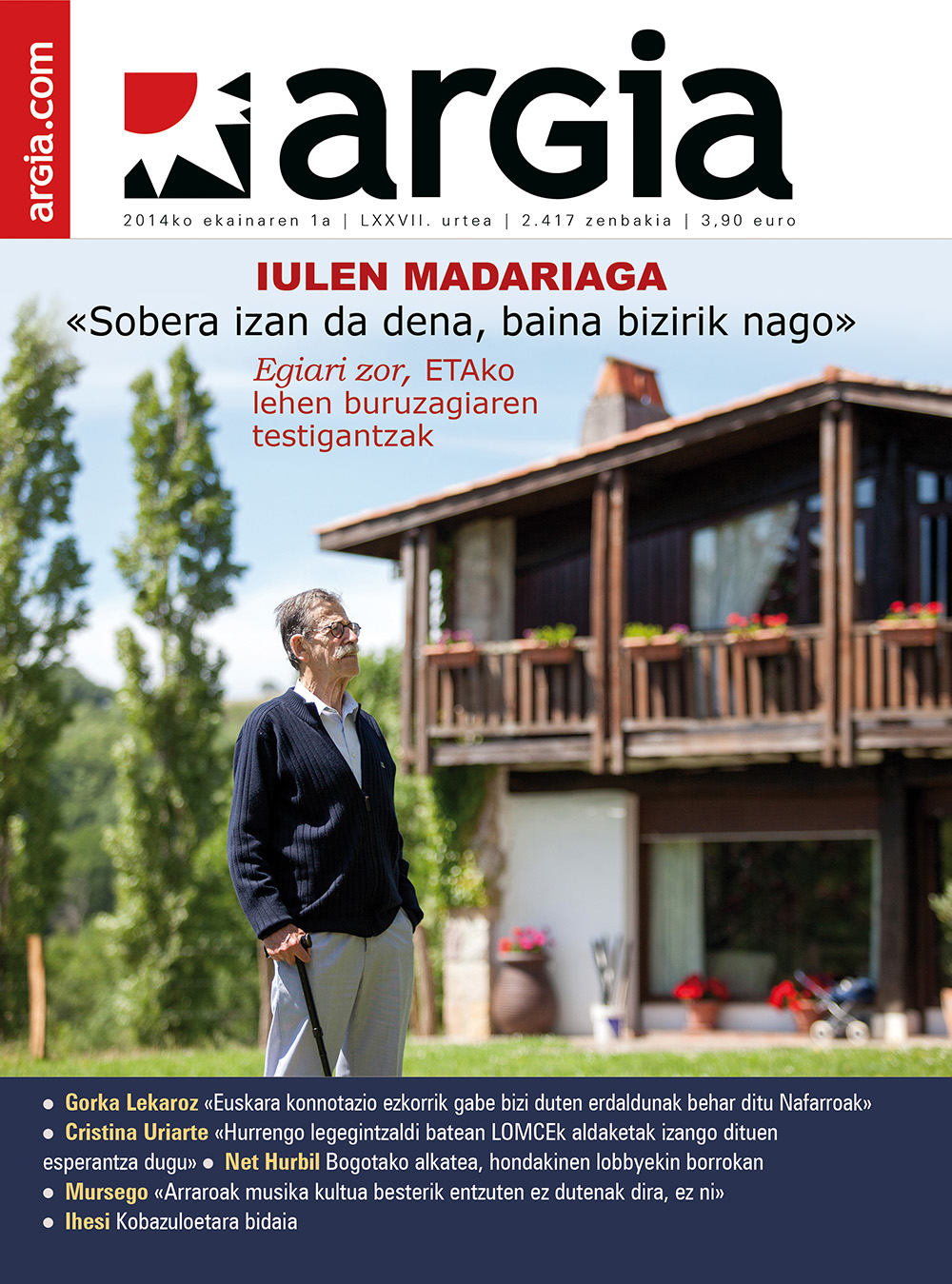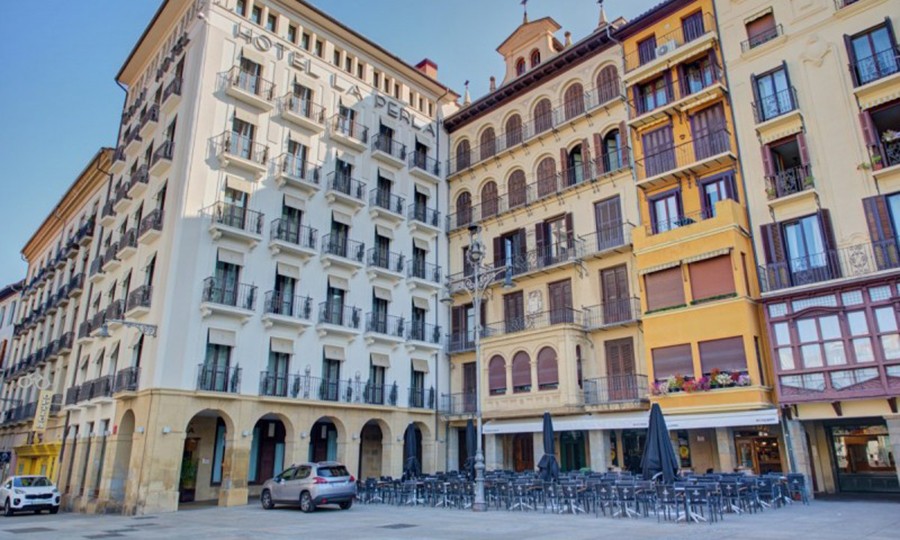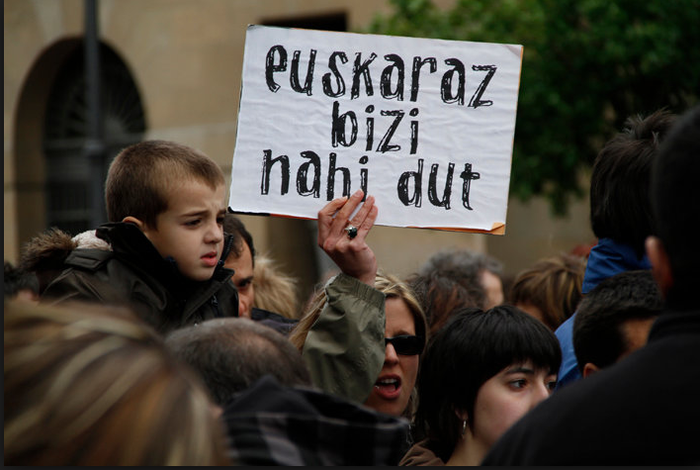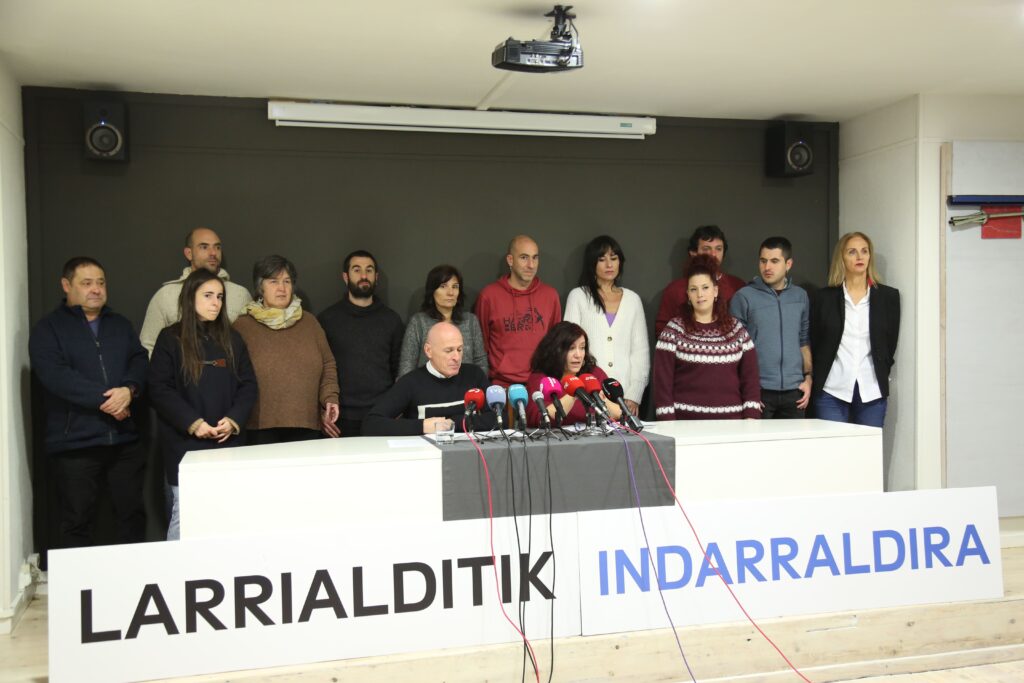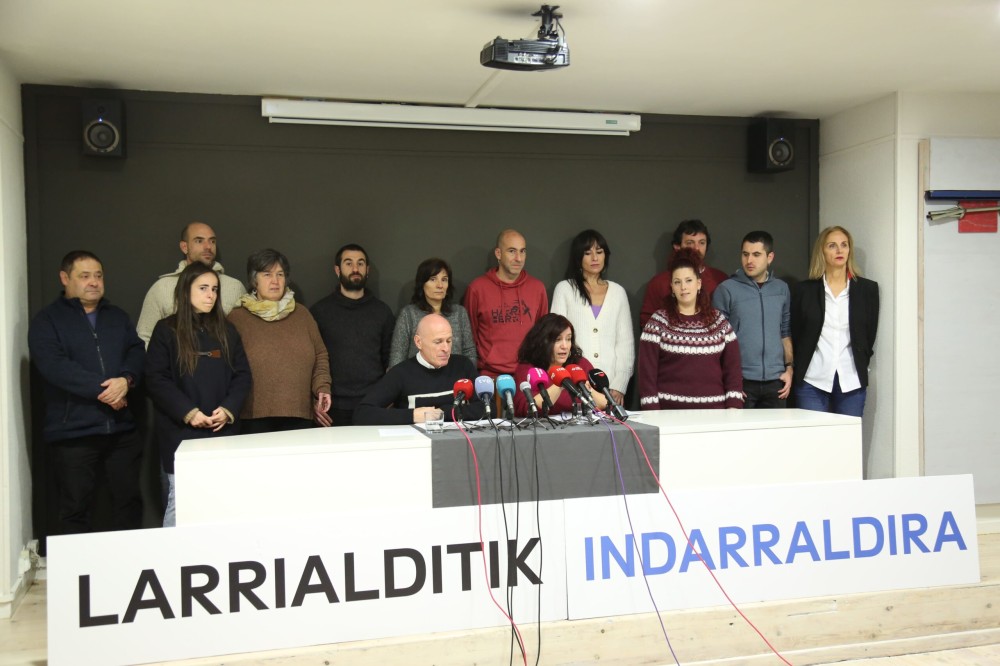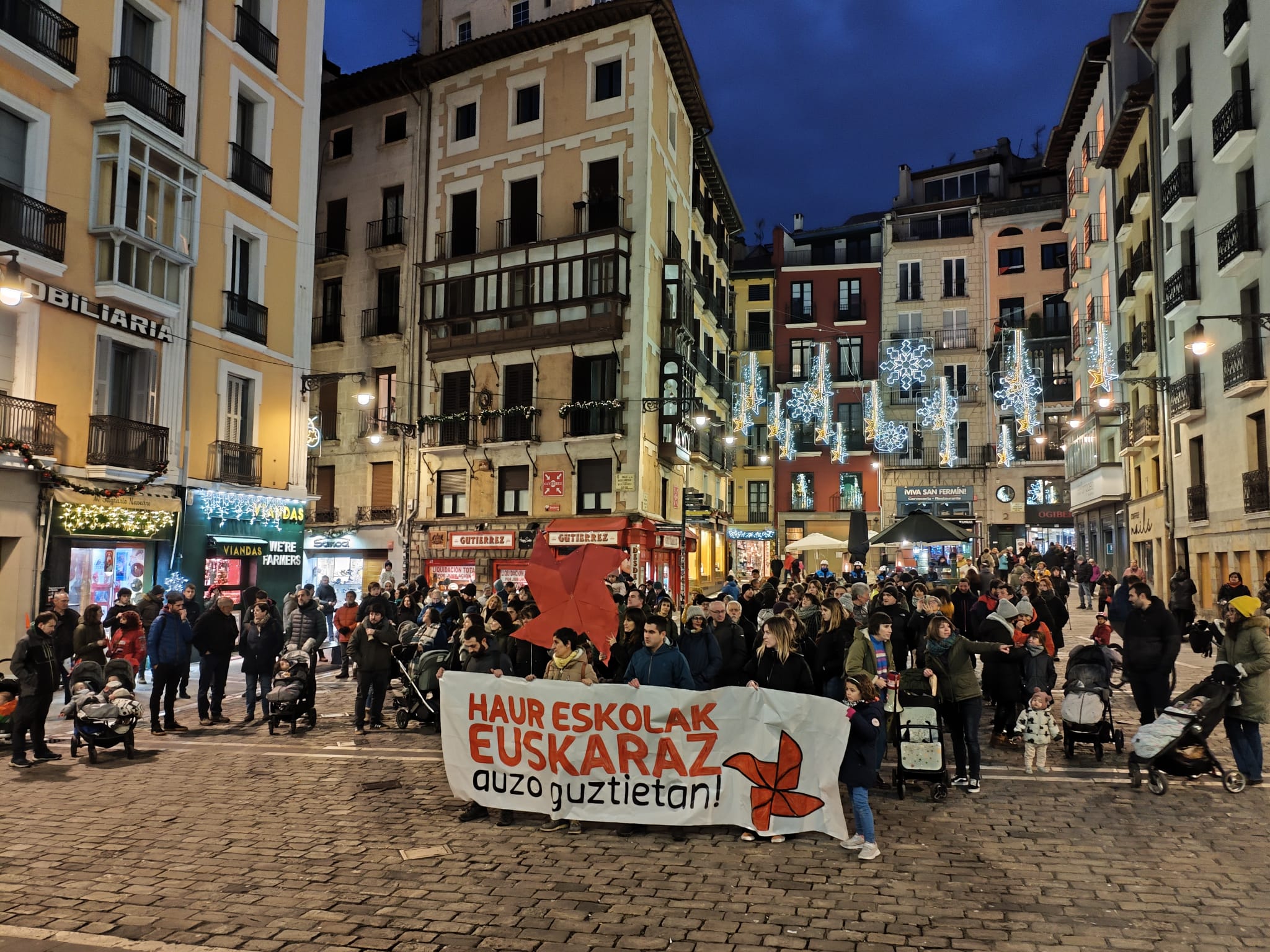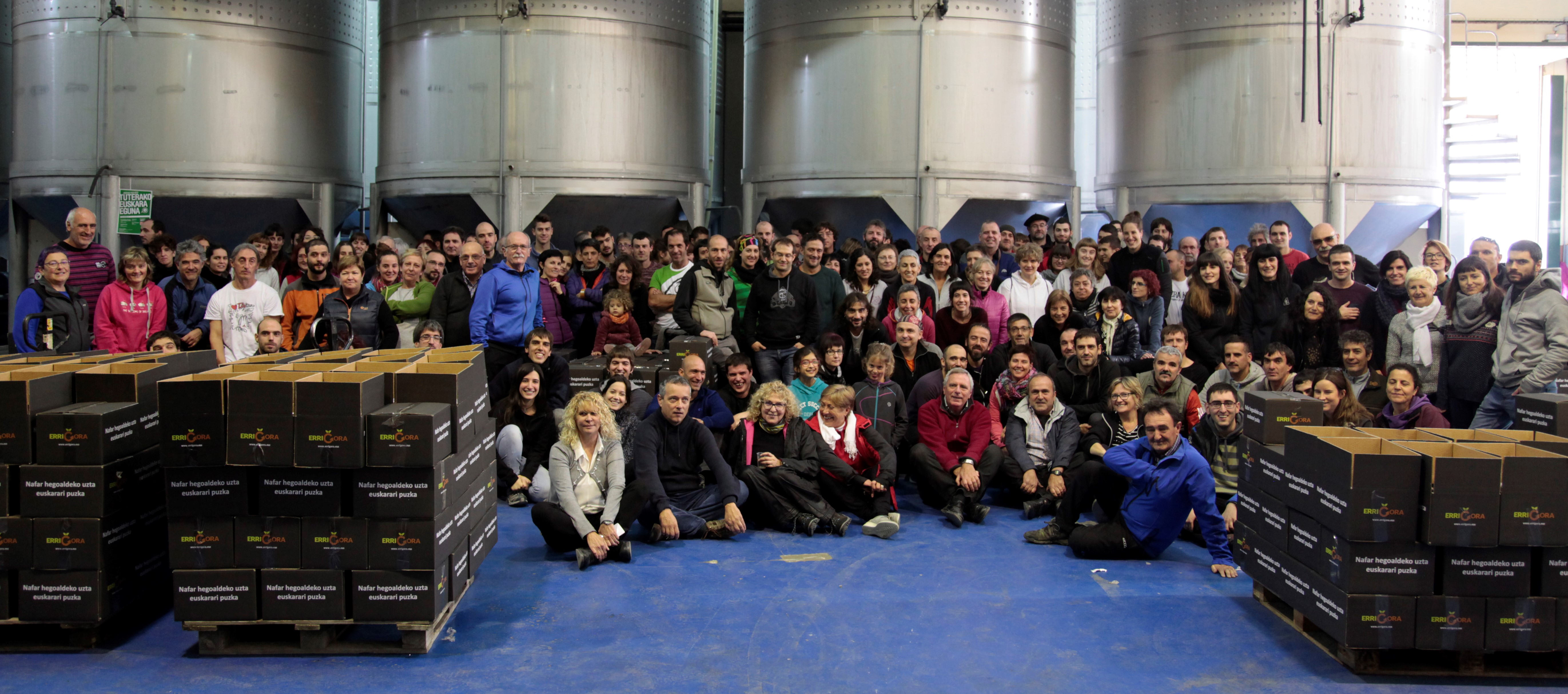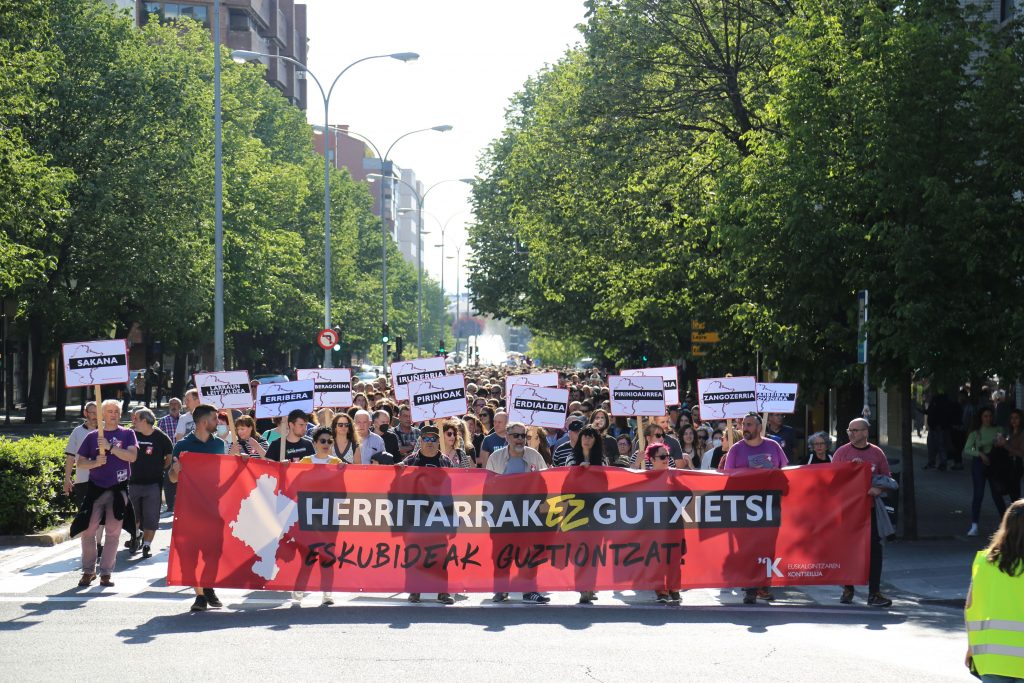"The loss of Euskera in Navarre and the neglect of what Euskera has been many times followed"
- Gorka Lekaroz (Donostia-San Sebastián, 1969) holds a degree in Basque Philology and a professor of Basque Philology. New technologies accompany him, they even say they fascinate him. Access to information, correct filtration. He is passionate about social networks and blogs in school work, launched the blog Lingua Navarrorum on January of last year and in it, he has brought us to view the path that Euskera has traveled in many towns of Navarre.
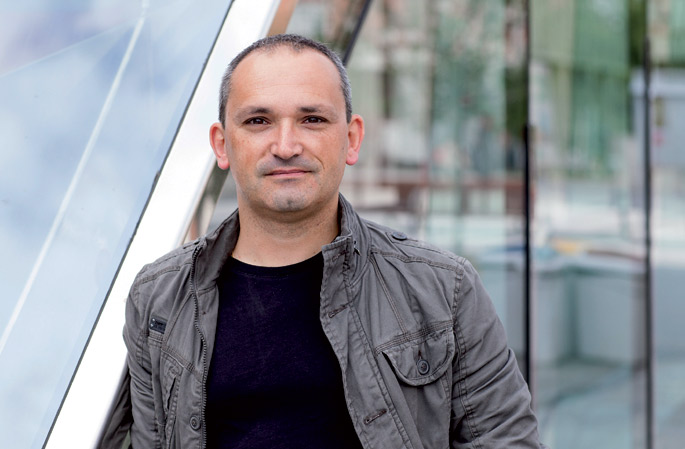
Lingua Vasconum, Lingua Navarrorum, what a strange, no Basque, Navarra. This is the motto that Nafarroa Oinez had in 1992 in Viana with the song by Bernardo Atxaga. Your beautiful blog also bears that usual name, Lingua Navarrorum of the year 1167…
Yes, Lingua Navarrorum… It’s not very original! That was the first thing I came up with. In the past, in the Middle Ages, the word ‘navarra’ had a linguistic value. He was the one who spoke Basque Navarro. Things have changed a lot, Navarre is not just the Basque, but you cannot understand Navarre, neither yesterday nor today, without the Basque. I do not want many Navarros of tomorrow to regard Euskera as something strange or unpleasant. And even less so the neighbors in the area who once had Euskera as their own language. Last spring, an old woman from the Ollaran Valley told me that she knew that in her town she also spoke in Basque “four or five centuries ago”. When that woman was born, the last Euskaldunzaharras of the valley still lived. The loss of the Basque in Navarre and the forgetting that it was the Basque has often come one after the other, but if this blog wants to send a message, it is that the desire to love and care for the linguistic heritage should be above ideology, and it would have to come together, whether Basque or not. I want to believe that one day all Navarros will feel Euskera as a value that enriches them.
What do we have your blog?
The documentary aims to be a space around the themes that connect Navarra and the Basque Country. The goal is the same language: texts related to the history, duration and loss of the Basque language predominate, but also the current limits of the Basque language, that is, the resources to know the Basque language on paper and in the network and other areas. The blog is not too old, as just over a year ago I started this. The goal, first of all, was to create a website or something similar that I would like to find on the net. I am happy with what I have done, and I believe that I am fulfilling this first objective. The other objective was to objectively present some of the subjects that have as axis Navarre and the Basque Country, and to offer an interesting place to those who have a hobby like mine. That is what I am getting, let others say!
We've come to her with curiosity. Your blog is very interesting to us. How do you organize this blog? There are posts, there are texts, there are photos…
From the beginning, I began to work on several contents: on the one hand, I began to summarize the historical trajectory of the Basque Country in some villages and valleys that have lost their language. I have already submitted data from some 20 countries. I have also offered short biographies of some ancient Navarran writers. I have also tried to bring to the blog the history of the borders of the Basque Country, explaining what the current words of Navarre are and comparing them with the older ones known in time. I have complemented all of this with other content: News related to Navarre and the Basque Country, presentation of books or web pages on the Basque Country in Navarre, insertion of some ancient texts…
Obviously, his work is based on research. Villages with the lost Basque, the trajectory of the Basque Country in Navarre, the ancient texts… From where does it start to show the testimonies that appear in the blog?
Prior information on most of the contents worked was already available. Or research by experts is collected. During the last decades [José María] Jimeno Jurio and other researchers have collected a lot of data from the archives and more and more news is showing when, how much and how far the Basque language has spoken in Navarre. In most cases, I have only collected and shared some of the results of this search work, anticipating the existence of partial works on some websites on specific regions – Izarbeibar, Artzibar…. On the contrary, there was no place, as far as I know, where the data from all of Navarre are collected. Sometimes I've added some of my own harvest. In 2013 I tried to determine where the southern limit of the Basque languages was in Navarre. I am particularly drawn to make a small effort in historical memory in the places that have lost the Basque country in recent decades and to know when the last Euskaldunes were. In some valleys, such as Ollarán or Roncal, new news has emerged from this road that has enriched what was previously written.
How do you see Basque today in Navarre and in the Basque peoples?
I am not in Navarre, I am a professor in San Sebastian. Therefore, although I often look at what is happening in Navarre, I am not able to respond as someone who sees it from there. But I fear, at least seen from the outside, that there are too many Navarros that still don't feel Vasophilus and that they feel very far away and strangers to the Basque Country. I believe that in Navarre a great deal of zubigintza work is needed on the Basque country. In my opinion, Navarre needs as much as many more Euskaldunes the Castilian speakers who have not learned Euskera today, but who live the language naturally and without negative connotations, that is, they can be the channellers of a more Euskaldun generation of tomorrow. Here too we have to sow and the fruits cannot be harvested overnight. But I know that my reading can be wrong, because reality is complex. In Gipuzkoa, without having to go to Navarra, the Basque Country is a distant reality for some of my students from San Sebastian.
It’s not bad that we remember each other… And what does Gipuzkoan centrism consist of?
I am peripheral, at least as far as Euskera is concerned. Maybe that's why I'm interested in studying the limits, looking at the things that have happened on the sidelines. Those of us as teachers who work with students from the urban environment often have to work in the border areas of the Basque Country. So I don't think I'm a very good person to tell you what centrism is.
Does your work have any relationship – equality, difference… – with the works done by Joxemiel Bidadores or Fernando Maiora? His works and his fine efforts come to mind by reading yours.
Bidor, Maiora... They're great names! One of them left a good job and the other many hours of work; I have them far away. I may feel like a Bider near my outreach will, and Maiora attracts me for her eagerness to find traces of language in old documents. It is a treasure all the texts in Basque that have not yet been found, have not been made available to the experts, have not been analysed, nor have they been published. Unfortunately, they are sometimes golden calves that we let rot in the trash cans, but which, if kept, will help us complete the history of the Basque Country.
Is the history of the Basque Country still writing?
It is not complete, of course, but at least in Navarre, more than it is written, I would point out that what has been written has a great need for disclosure. The Basque Country is still a space full of myths and prejudices, both of them. In Navarre there have been large studies on the history of the Basque Country. Through these studies, it is necessary to transfer what has been learned to society – and not only to the usual readers – and to eradicate the old topics about Euskera. I believe in objectivity, seriousness and dissemination in the face of topics. And we have to keep writing the history of the Basque Country, of course, but not so that that story can confirm our previous conclusions, but to get to know us better.
Scientific Culture I. Your blog participates in the festival.
The proposal drew me from the very beginning. It's being a very nice experience. Jon Mattin Matxain is doing a great job in organizing and organizing the festival. On the one hand, because, as Matxain has pointed out, it is a good tool to blur that artificial boundary between “sciences” and “letters”. On the other hand, because the use of Euskera in these types of tasks is the best service and the best advertising we can do to the language. In my opinion, in order to disseminate knowledge, the value of the Basque language must be asserted, against those who say that it is an incapable language and that it serves little. And, without neglecting the traditional academic path, social networks are a great place for this, because the Basque country must also be in new spaces, and in this type of virtual spaces the only limitation it can have is the will or the will of the Basques themselves.
“Bloga neuk sortua da eta sarrera guztiak ere nireak dira, baina jende mordoxka baten laguntza izan dut hilabete hauetan. Emaitza askoz pobreagoa izango zen bestela. Sarritan ibili naiz han eta hemen informazio eske euskararen mugak zehaztu asmoz edota azken euskaldun zaharrei buruzko albiste bila, eta toki askotan bultzada ederra eman didate: Ultzaman, Lizoainen, antzinako Arriasgoitin, Ollaranen, Ezkabarten, Arakilen, Erronkarin… Azken haran hori dela-eta bi lagun aipatu nahi ditut, Gotzon Perez Artutx eta Dabid Lalana bidankoztarrak. Haien interes eta laguntzari esker Bidankozeko azken belaunaldi euskaldunaren inguruko xehetasun ugari bildu ahal izan ditut, herriko adinekoek oraindik gogoan zituztenak eta zenbait urte barru agian ahaztuko zirenak. Baina beraiek prestatu didate bidea, nik segitu besterik ez dut egin. Blogak Nafarroako euskaltzale askorekin jarri nau harremanetan. Hori da eman didan pozik handienetako bat”.









